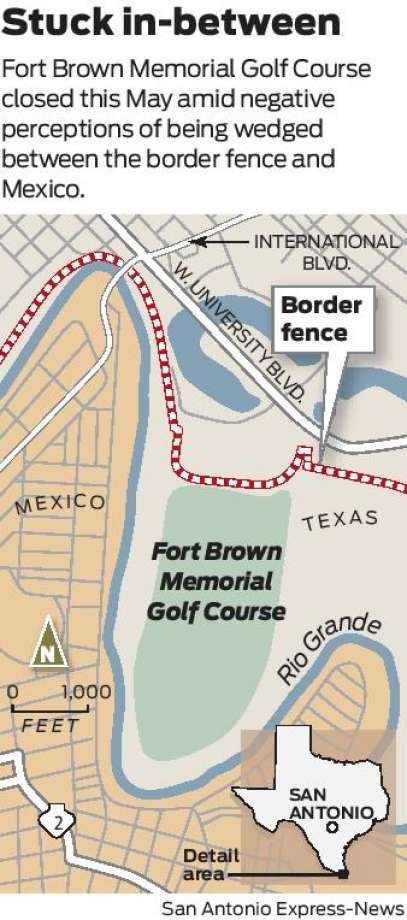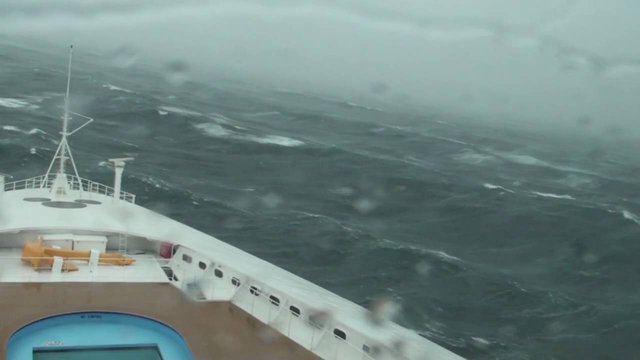Best Place to Commit a Crime and Get Away With It?

Where is the best place to commit a crime and get away with it? There may be other good spots, but I decided to analyze a few in this post. If you’re in the United States, what about Eastern Idaho? Or Brownsville, Texas between the border fence and the river? Would outer space be the best spot? No, ladies and gentlemen, none of those is the best place at all. The near-perfect location to commit murder and not get caught…will be revealed shortly (read on).

Image: Idaho Map, Public Domain.
Eastern Idaho Within Yellowstone National Park
Not long ago, a law professor made headlines by suggesting that a legal loophole could allow someone to get away with murder in the Idaho portion of Yellowstone National Park. In short, most of Yellowstone National Park lies within the state of Wyoming and all of it is assigned to the U.S. District Court for the District of Wyoming, but smaller portions of the park lie in Idaho and Montana. However, the Sixth Amendment to the U.S. Constitution requires that a jury be composed of people from both the state and district where the crime was committed. This could not be accomplished in the small Idaho portion of Yellowstone, since no one lives there.
So if they couldn’t prosecute any crime occurring there, wouldn’t Eastern Idaho be the perfect place to commit the perfect crime?
No. That 50-mile stretch of Idaho is not the perfect place to commit a crime because no one commits an entire crime in one place. For example, you might have a hard time finding a murder weapon in uninhabited wilderness; you’d buy or procure it elsewhere and could be prosecuted there under state or federal law. They might even implicate your cell phone in the crime somehow and tie that to your purchase or contract elsewhere. The same is true of motive (which takes time to develop) or of any element needed to prove the offense; evidence occurring elsewhere could break the spell of this perfect crime.
Also, because a prosecution under these circumstances would be novel and untested, the court could give it any sensible interpretation. And “sensible” usually is a euphemism for ‘in the interests of justice’.
As a former lawyer, I’ve seen plenty of tricks. Trust me, they would interpret that clause of the Sixth Amendment to be inapplicable somehow. Most likely, the court would hold that this clause was designed to create a fair jury, and if there isn’t anyone living in that portion of Idaho anyway, no one from Idaho would be needed to compose a fair jury. They would stock your jury with Wyoming cowgirls and oil guys, who would string you up in a heartbeat.

Image: Knuckleduster40mm.
And that’s not even considering the fact that Idaho might claim jurisdiction and prosecute the crime there under state law, determining that the federal government’s ‘exclusive’ jurisdiction would not apply due to the above issue.
If I wanted to get away with murder, I wouldn’t do it there.
Brownsville, Texas Beyond the Fence
What about a border ‘no man’s land’? Much of the U.S.-Mexico border is very straight and easy to identify. That’s not the case where the border is set by the Rio Grande River. But when the border fence was placed near Brownsville, Texas, it didn’t follow the river exactly. There is an area where the river runs well south of the border fence, so there are several U.S. houses and families who got stuck. Their land lies south of the “border”. Even a golf course was stranded beyond the fence; it had to shut down because no one went there anymore.

Image: San Antonio Express News.

Image: NPR.
If a person committed a crime in that ‘no man’s land’ (or any unclear or disputed border area), wouldn’t there be a reasonable argument that the crime was not committed in the U.S. at all? If a U.S. prosecutor pursued the case, you could just argue that the country walled off its borders and this area was not included within them. So how could the U.S. government possibly assert jurisdiction?
The problem here is that the place is swarming with border patrol agents. The people who live there get easy passage through the fence gate. The authorities know it well as part of the U.S. And if they treat it as a de facto part of the U.S., a court probably would, too.
Since the borderland is one of the most heavily guarded and monitored parts of the country, with cameras and sensors and drones in places we don’t even know about, it seems like a dumb place to commit a crime.
Outer Space
Blast off outside of any jurisdiction and you can do whatever you want, right? One full year of living with some dude in close quarters on the space station and you may want to strangle him. But unless you are planning a one-way trip, you would get arrested on your return to earth.

Image: Public Domain.
The basis of criminal liability comes from the Outer Space Treaty on 1967. Under this treaty, an astronaut in outer space is subject to the laws of the country upon whose vessel the astronaut launched on. Also, upon return to earth, the United States, Russia, Europe, Japan, or Canada may exercise criminal jurisdiction over their own nationals, while any country may request jurisdiction over a person who is alleged to have caused harm to its own person or property.
In other words, unless you’re headed for Mars or beyond, committing a crime in outer space will simply earn you the long arm of justice once you return to earth.
Cruise Ships on the High Seas
And now we come to my pick for the best place to commit a crime that is unlikely to be prosecuted: the on high seas. And since most people travelling the high seas do so on cruise ships, they are a good point of focus. If a cruise ship is operating in international waters, beyond a country’s territorial limits, then that country may not have the ability to assert legal control over an event that takes place on board. Cruise ships also tend to be registered in “hands off” countries like the Bahamas, Bermuda, Liberia, Malta, and Panama.
The U.S. government’s General Accounting Office (GAO) has estimated that 78% of crimes are never listed in government crime reports. Yet assaults on cruise ships are as common as they are on city streets. Cruise ships do not have police forces on board and even when crimes are reported, investigations are limited in depth and scope.
When a passenger goes overboard from such a huge vessel, especially at night, it can be minutes or hours before anyone knows the person is missing. Falling into water from the height of an upper deck can cause broken limbs, shock, and enough bodily damage that swimming would be difficult. While some cruise lines have “man-overboard” detection systems, most are not that comprehensive yet. Cruise lines continue to resist mandates to implement these systems.
A number of people continue to go missing from cruise ships each year. Some of these passengers are suicide jumpers and others probably have real accidents, but a good number of them may be the victims of crimes. Cruise ship railings are designed for safety, so if someone is going overboard, it’s most likely the person jumped or was pushed.
Since 2010, according to one analysis (of incomplete data), some 140 people have gone missing from cruise ships.

Image: J. Howard Marshall died naturally, as far as I know, but not all hot young women marry rich older dudes for love. Ranker.com.

Image: Still picture from https://www. youtube. com/watch?v=MzvaxOOpj24 . Spaces inserted in address to disable video from embedding here; please remove the spaces if you want to watch the video (though it is not directly related).
Here is a recent example of what a black hole these cases can be in terms of evidence and response time. On January 2, 2017, a French man went missing from the MSC Divina, which was sailing near Puerto Rico. The man’s wife reported that he went out on the balcony for some fresh air around 3:00 a.m. The wife apparently went back to sleep; it is unclear when the cruise ship learned that he was missing. Once they did find out, the crew conducted a search of the entire ship and called for the missing passenger on the public address system, but could not locate him.

Image: Outchasingstars.com.
The U.S. Coast Guard was notified some 5 hours after the wife found her husband missing. The Coast Guard did not initiate its search until around 11:55 a.m. that morning, since it may have taken that long to summon air or sea support to the area. So that means that the passenger had been missing for nearly 9 hours already. They called off the search 35 hours later, never having found him.
With all due respect to this family that lost someone tragically, this example indicates how little evidence exists for these missing persons cases. The decks are enormous and at night after drunks have passed out, few people are outside. Absent any detection system, a person could be pushed overboard, with no witnesses except for the person committing the crime, who is then free to spin whatever tale he or she wants. And it may not be reported for hours, followed by a delay for search and rescue, and by that time the odds of survival are slim to none.
We Have a Winner. But Please Don’t Commit Any Crimes or Cause Needless Suffering.

Image: Memegenerator.net
If I wanted to get away with a crime like murder, the high seas would be a pretty good place. But I do not encourage anyone to commit crimes. In fact, my research for this article was quite sobering because I learned how many sites there are devoted to reporting and investigating cruise ship deaths. A lot of people have lost loved ones on ships and do not know why or how.
So unless the person you want to croak is 100 years old and worth many millions of dollars (just kidding; even that’s not worthy of an exception), remember that taking a life is a crappy thing to do. It usually hurts a lot of other people, too. And perhaps this blog post highlights the need for better attention to crime prevention and rights in some of these odd niche areas that I have covered.
References:
Thanks to @donkeypong for helping me edit.
First image: Public Domain from Pixabay.
Perfect Crime in Eastern Idaho? http://mentalfloss.com/article/83439/perfect-crime-may-be-possible-yellowstone-park
Crime in Outer Space: http://www.businessinsider.com/heres-what-happens-if-you-commit-a-crime-in-outer-space-2014-1
Texas Border Residents Don’t Like the Fence/Wall: http://www.texasmonthly.com/articles/living-with-the-border-fence/
No Man’s Land: http://www.seattletimes.com/nation-world/border-fence-leaves-some-texans-in-no-mans-land/
Cruise Ship Security: http://articles.sun-sentinel.com/2014-02-19/news/fl-cruise-line-security-20140219_1_cruise-ships-azamara-club-cruises-cruise-industry
Crimes on Cruise Ships: http://www.cruiselawnews.com/2012/03/articles/rape-1/are-cruise-ships-a-perfect-place-to-commit-crimes/
Disappearances on Cruise Ships: http://www.cruiselawnews.com/articles/disappearances-1/
Great post with excellent information
People get away with "illegal" things all the time all over the world. I would suggest making a distinction between "illegal" and "criminal" first. Your examples all assume a victim and an aggressor, thus indicating a crime regardless of the law. Since government police and courts do a terrible job of producing justice, perhaps better solutions can be explored too.
All true. It wouldn't fit in one post, though.
Really interesting topic and enjoyable read.
Insane man! There must be some other places like it!
My first Advice : Don't do any illegal stuff
That's probably better advice than I gave!
Cool story. I like it. Thanks for all that information! Very usefull. Thanks
Interesting...
Very nice read. This'll make me think twice about going on a cruise!
(Aside from the fact that I wouldn't feel very safe out there on the open sea anyway.)